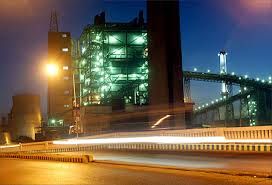Sub-group appointed by Forum of Regulators suggests fuel linkage for power generation amd a special purpose vehicle to provide clearance to miners
 The Centre will need a whopping Rs 15.70-lakh crore (Rs 15.7 trillion) to provide power round the clock, to everyone.
The Centre will need a whopping Rs 15.70-lakh crore (Rs 15.7 trillion) to provide power round the clock, to everyone.
Providing reliable, secure and quality power to everyone between 2015 and 2019 is one of the flagship projects of the Bharatiya Janata Party-led National Democratic Alliance.
The proposed investment will result in the sale of about 1,280 billion units.
These are the key findings of a sub-group appointed by the Forum of Regulators, headed by Karnataka Electricity Regulatory Commission chairperson M R Sreenivasa Murthy.
The forum discussed the report at its meeting last month and decided to forward it to the Union power ministry for further action.
According to the report, the generation projects envisaged for completion by 2018-19 need to be given priority in fuel linkage.
The highest priority should be given to achieve plant-load factor of 80-85 per cent for coal-based thermal plants and adequate coal linkages and supplies should be ensured for all commissioned capacities and for the plants likely to be commissioned within the next five years.
This is necessitated as the projected domestic coal requirement will be 800 million tonnes by 2016-17 against the projected availability of only 560 million tonnes for the power sector.
The sub-group has a made a strong case for the formation of a special purpose vehicle to expeditiously obtain environmental and other clearances before auctioning of coal blocks for exploitation by mining companies.
The sub-group has suggested that the concept to commissioning time be pruned to 40 months for generation and the conceptualisation to award process be also reduced to five to six months from 21 months.
As far as gas-based power projects are concerned, they should be bundled with other sources of energy to make peak power affordable for distribution companies. Furthermore, the sub-group has recommended that emphasis on renewable capacity addition particularly in solar and wind energy be given considering the short gestation period.
On the increase in the transmission capacity, the sub-group has pitched for a mission mode-approach for achievement of 100 per cent electrification of un-electrified households, particularly, states which have less than the national average proportion of electrified households.
A separate machinery with special funding arrangements should be carved out to implement the programme in Bihar, Assam, Uttar Pradesh, Jharkhand and Odisha, where less than 50 per cent of the households have electricity supply.
On strengthening power distribution, the sub-group has suggested that a special programme should be launched for aggressive reduction in aggregate transmission and commercial losses with an objective that these losses are cut at the rate of two per cent per year over the next five years.
Besides, star-rated pumps should be made mandatory where agricultural consumption exceeds 10 per cent of the total electricity consumed in the state.
In addition to this, adoption of solar irrigation pumps need to be encouraged by providing 50 per cent of the cost subsidy.
In order to improve the financial health of the distribution sector in particular, the sub group has recommended the availability of adequate institutional finance be ensured, timely payment of subsidies by state governments and adequacy, regularity of tariff revision by the state electricity regulatory commissions and segregation of agricultural feeders from other rural feeders.

.jpg)









